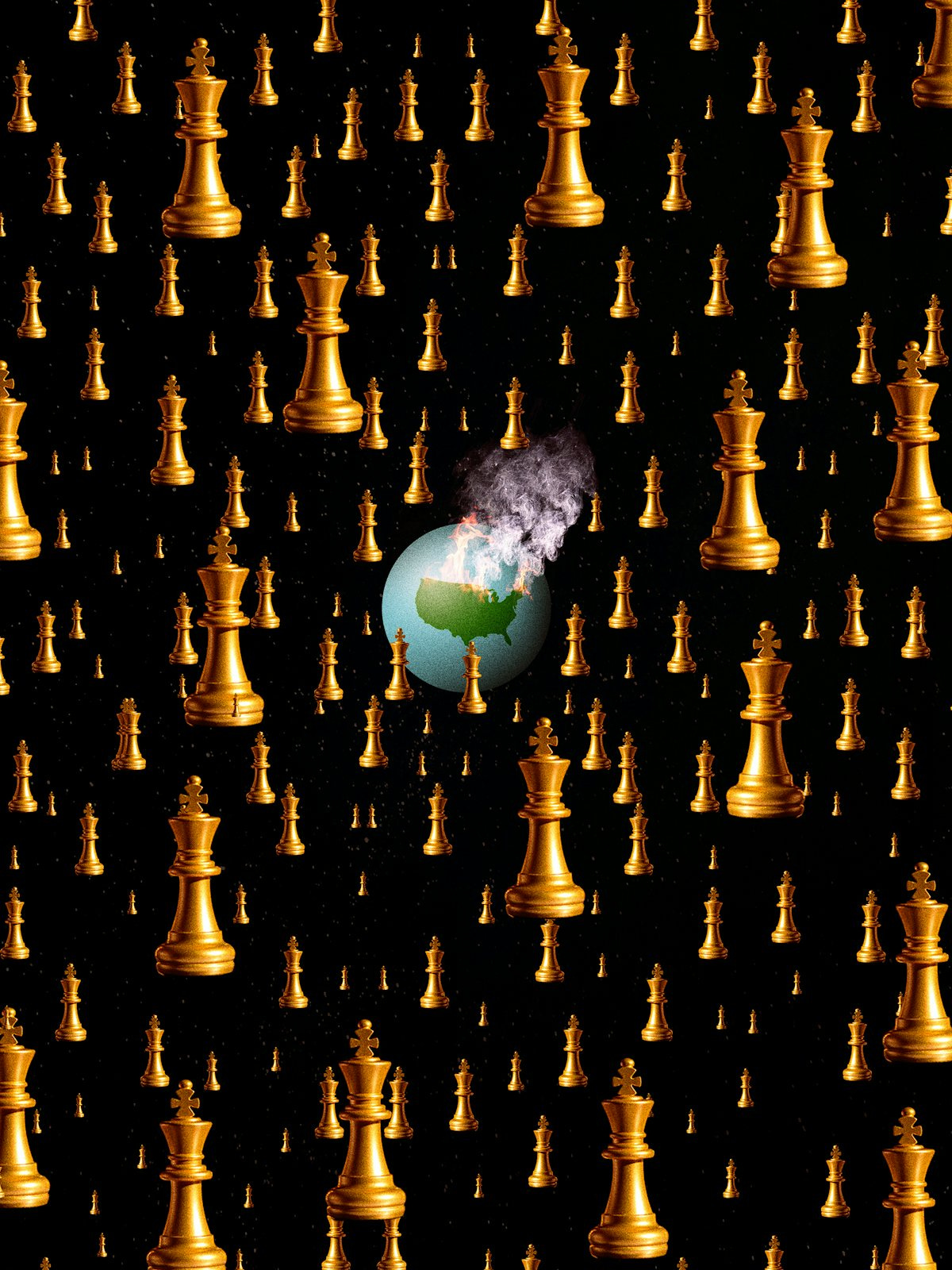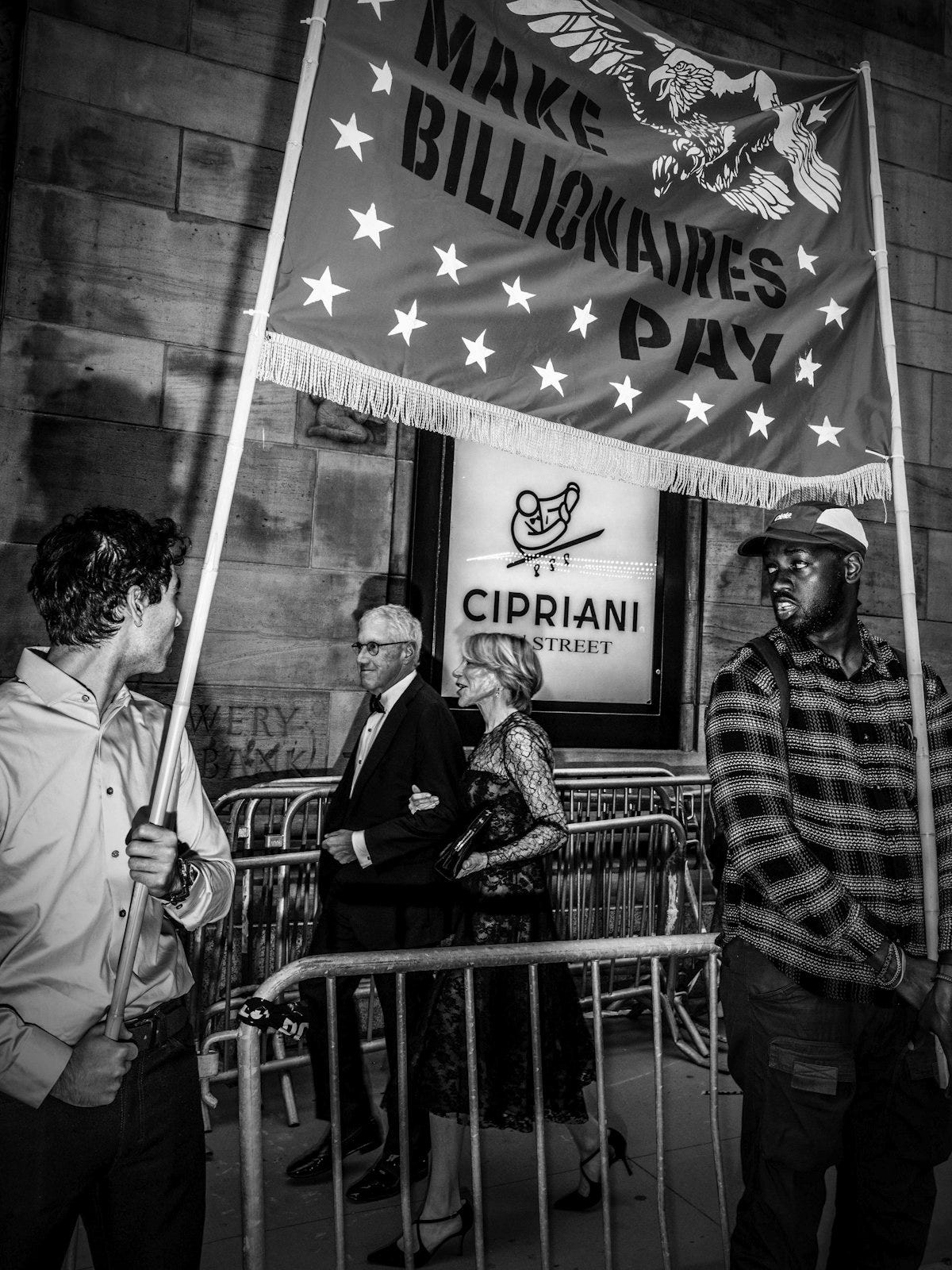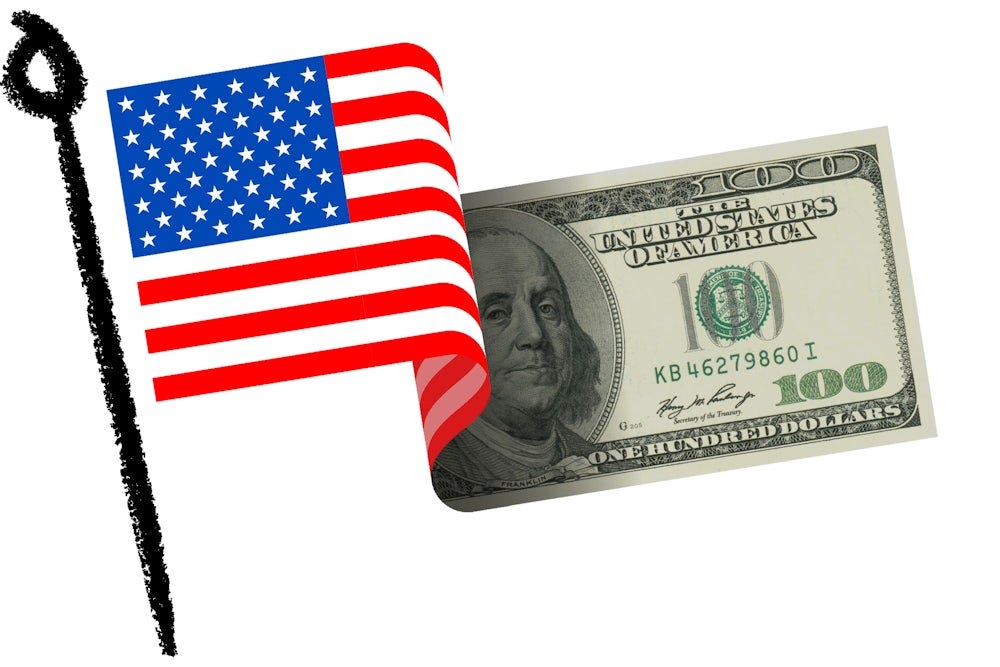Want to Know What’s Killing Democracy? Start Here.
When a few own everything, the rest don’t get a voice.
Earlier this year, I learned that Elon Musk, Jeff Bezos, and Mark Zuckerberg were all now worth something well north of $200 billion. The news item I encountered noted that in all three cases, their fortunes had at least doubled in the last decade, and Musk’s had increased by as much as 10 times.
That is an incomprehensible increase. Going from, say, $30 billion to $300 billion is not the same as going from $30 to $300, or from $30,000 to $300,000. Yes, all are increases by a factor of 10. But having $300 means you can treat yourself and a guest to a good meal. Having $300,000 means you can buy a nice boat. Having $300 billion means you could buy several small countries.
The wealth divide in this country has reached obscene, and plainly anti-democratic, proportions. It was not always this way. In fact, it’s never been this way. Fifty years ago, J. Paul Getty was the country’s richest man, at $6 billion. Today, even adjusting for inflation, America’s richest people would barely invite Getty to dinner.
In this special issue, we examine how this happened, what Americans think of it, and how it can possibly be undone. Staff writer
delivers the grim and epic narrative of how we got here. Filmmaker and writer (granddaughter of Roy, Walt’s brother) makes a stirring plea for raising taxes on her and her ilk. Veteran journalist Joe Conason examines Trump’s corruption, arguing that such self-dealing is endemic to authoritarian regimes. And finally, we commissioned an exclusive poll, analyzed by executive editor Ryan Kearney, on how aware Americans are of our wealth gap (very) and how much they’d like to see it change (a lot).Louis Brandeis’s words remain true: “We can have democracy in this country, or we can have great wealth concentrated in the hands of a few, but we can’t have both.” In ways Brandeis could never have imagined, we may be about to find out.
How the Billionaires Took Over
Yes, Donald Trump is a threat to democracy. But the far bigger menace is the monstrous growth in wealth concentration over five decades that made a Trump presidency possible—and maybe inevitable. Here’s how we let it happen.
The TNR Wealth Poll: Americans Say Spread the Dough
Our exclusive survey shows that a majority of Americans understand just how unequally wealth is distributed in the country—and they’re not happy about it.
How Much Do You Know About Wealth and Inequality in America?
Take this TNR quiz and find out.











This piece rightly diagnoses the rise of oligarchy, but its conclusion—that restoring democracy requires structural economic reforms like progressive taxation, union revitalization, and regulation—misidentifies the causal chain. These reforms are worthy, but they’re not possible until we confront the deeper problem: the capture of the democratic process by wealth through the persuasion industry, shielded by First Amendment jurisprudence.
The root issue isn’t just that billionaires have too much money; it’s that they can legally use that money to dominate campaigns, fund think tanks, capture media narratives, and shape public opinion in ways that entrench their power. Since Citizens United, courts have enshrined money as speech, granting legal entities First Amendment protections that make meaningful reform practically impossible.
You cannot tax the rich, rebuild labor, or regulate markets if the agenda-setting mechanisms—from Super PACs to foundation-funded policy shops—remain under billionaire control. In other words, we can’t restore democracy without first breaking the link between money and speech. And that would require confronting the legal doctrine at the heart of the modern American oligarchy—something this essay never dares to touch.